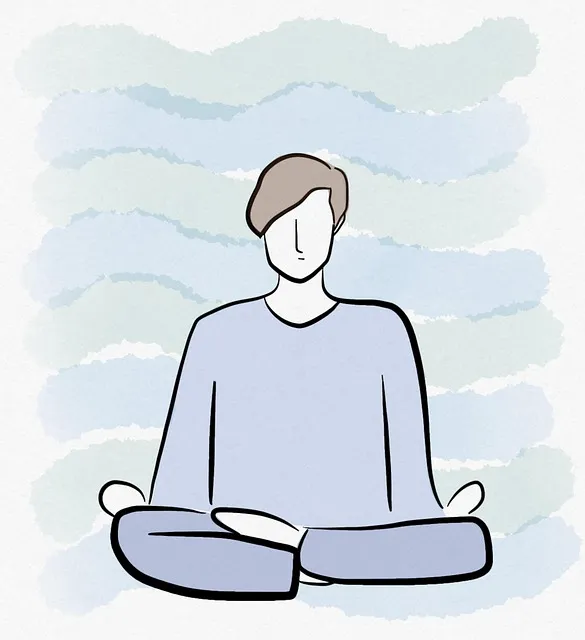Kaiser Permanente in Castle Rock provides mental health services through skilled facilitators who create safe, supportive group environments. These facilitators employ active listening, open dialogue, and cultural sensitivity to promote healing, self-reflection, and emotional regulation. Their inclusive approach, addressing trauma and stress management, enhances therapeutic benefits and ensures every individual feels seen and heard, ultimately improving mental wellness outcomes in the community.
Mental wellness group facilitation plays a vital role in fostering healing and personal growth among individuals facing various challenges. This article explores effective techniques employed by professionals, with a specific focus on Kaiser Permanente’s approach to mental health services in Castle Rock. We delve into the unique strategies that create supportive group environments, enhancing participants’ well-being. Understanding the facilitator’s role is crucial, as they navigate complex issues and promote open discussions. By examining these practices, we aim to highlight innovative methods in mental wellness support.
- Understanding Mental Wellness Group Facilitation
- Role of a Facilitator in Promoting Healing and Growth
- Kaiser Permanente's Approach to Mental Health Services in Castle Rock
- Effective Techniques for Facilitating Supportive Group Environments
Understanding Mental Wellness Group Facilitation

Mental wellness group facilitation is a specialized skill that plays a pivotal role in supporting individuals navigating mental health challenges. It involves creating a safe and supportive environment where participants can connect, share experiences, and learn from one another. This approach recognizes the power of community and collective healing. Facilitators, often professionals like those offered by Kaiser Permanente in Castle Rock, are trained to guide these groups, fostering open dialogue and encouraging inner strength development.
Effective facilitation techniques tap into positive thinking while maintaining a nuanced understanding of cultural sensitivity in mental healthcare practice. By recognizing and respecting diverse backgrounds, facilitators create an inclusive space that validates various experiences. This approach not only enhances the therapeutic benefits but also ensures that every participant feels seen and heard, ultimately contributing to improved mental wellness outcomes.
Role of a Facilitator in Promoting Healing and Growth

In the context of mental wellness groups, facilitated by professionals like those found in Kaiser Permanente’s services in Castle Rock, the role of a facilitator is multifaceted and crucial. They act as guides, creating a safe and supportive environment that encourages open dialogue and fosters healing. Through skilled active listening, facilitators promote self-reflection among group members, enabling them to explore their thoughts and emotions freely. This safe space not only facilitates personal growth but also provides a network of peers who understand their experiences, enhancing Mental Health Awareness.
The facilitator plays a vital role in navigating complex topics such as trauma and burnout prevention strategies for healthcare providers. By recognizing individual needs and managing group dynamics, they ensure that every member feels valued and heard. This supportive approach encourages participation, enhances the effectiveness of Trauma Support Services, and ultimately contributes to positive mental wellness outcomes. Incorporating these techniques aligns with Kaiser Permanente’s commitment to providing comprehensive mental health services in Castle Rock.
Kaiser Permanente's Approach to Mental Health Services in Castle Rock

In Castle Rock, Kaiser Permanente takes a holistic approach to mental wellness, recognizing that emotional regulation and stress management are integral components of overall health. They offer a range of services designed to support individuals in cultivating positive thinking and resilience. Through dedicated programs and access to skilled facilitators, Kaiser Permanente aims to create a supportive environment where people can navigate and overcome mental health challenges effectively.
The organization’s commitment extends beyond traditional therapy sessions, incorporating innovative techniques and community-based initiatives that foster open dialogue and connection. This comprehensive strategy ensures that residents of Castle Rock have access to the resources they need for improved mental well-being, promoting a healthier and more vibrant community. By focusing on both clinical care and preventive measures, Kaiser Permanente leads the way in shaping positive mental health outcomes.
Effective Techniques for Facilitating Supportive Group Environments

Creating a supportive group environment is paramount for effective mental wellness facilitation. Techniques such as active listening, open-ended questioning, and fostering inclusive discussions encourage participation and build trust among group members. Facilitators should aim to establish clear ground rules, ensuring every voice is heard and respected, which cultivates a safe space for sharing. This approach, coupled with empathy and warmth, can significantly enhance the therapeutic experience, especially when tailored to diverse backgrounds through Cultural Sensitivity in Mental Healthcare Practice.
Additionally, integrating Social Skills Training and Crisis Intervention Guidance into group sessions equips members with valuable tools for managing emotional challenges. By providing opportunities for skill-building and practicing coping strategies collectively, facilitators empower individuals to navigate mental health struggles more effectively. These techniques, when offered within accessible platforms like those provided by Kaiser Permanente in Castle Rock, can significantly improve community mental wellness outcomes.
Mental wellness group facilitation plays a pivotal role in fostering healing and growth among individuals seeking support. As demonstrated by Kaiser Permanente’s approach to mental health services in Castle Rock, effective facilitation techniques can create safe, supportive environments that enhance well-being. By understanding the unique roles of facilitators and employing strategies like active listening, structured discussions, and promoting peer-to-peer connections, groups can become powerful tools for personal growth and community building. This holistic approach ensures that individuals not only receive professional guidance but also find solace and strength in shared experiences. Thus, Kaiser Permanente’s initiatives highlight the transformative potential of mental wellness group facilitation, offering hope and healing in communities like Castle Rock.






